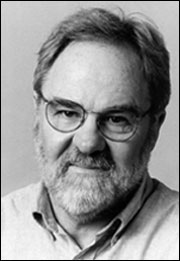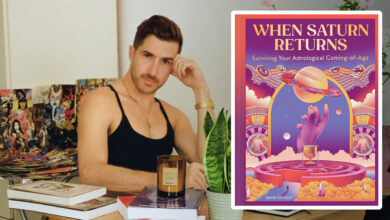Civil Words
A new book recounts the Vermont gay-marriage struggle
by Alton LaDay
 Pulitzer Prize-winning journalist David Moats has authored one of the most gripping accounts of the modern gay civil rights struggle. Civil Wars: A Battle for Gay Marriage (Harcourt) chronicles Vermont’s public battle over the legalization of gay marriage and the intimate stories of the players behind the scenes.
Pulitzer Prize-winning journalist David Moats has authored one of the most gripping accounts of the modern gay civil rights struggle. Civil Wars: A Battle for Gay Marriage (Harcourt) chronicles Vermont’s public battle over the legalization of gay marriage and the intimate stories of the players behind the scenes.
Early in January, I had the opportunity to discuss the inspiration for Civil Wars with Moats and ask why a heterosexual man would take on such an endeavor. As the editorial page editor of the Rutland Herald, Moats became a witness to what he called “the most extraordinary story” he has ever covered. He began to write a series of fair and humane editorials for the paper that eventually earned him the 2001 Pulitzer. “I came to this story by history and by luck,” Moats said. “Like many of my generation, I had been touched by the power and moral force of the civil rights movement.” Moats felt that this disposition made him empathetic to the gay couples in Vermont seeking the right to marry. “I did not come to the issue as a gay man. I came to it as a journalist,” Moats said. “Like anyone who manages to look beyond the distinctions of sexual orientation, I was able to see a truth that becomes increasingly plain as the curtains of bias are pulled aside.”
Moats sets the stage for his book (in bookstores on February 2) by beginning with the historical significance of this lawsuit taking place in Vermont. “If you look at Vermont’s history, you see why the citizens consider themselves people who value equality,” he said. “It was the first state to prohibit slavery and hosted a strong abolitionist movement.” Moats demonstrated this climate of tolerance with an anecdote from his workplace. “Our editor for over 40 years was an early opponent of McCarthy and an early supporter of the civil-rights movement in the ’60s,” he said. “There was also an influx of newcomers to the state in the ’60s and ’70s that brought a certain, more modern-day liberalism.” Moats added that the lack of influence that fundamentalist religion has on other states was another strong factor. “There are fundamentalist churches here, and there were religious groups that spoke out against gay marriage, but not nearly at the level you find in the South.”
I asked Moats to compare the civil-rights struggle of the ’60s to the gay marriage issue. He said that the battles were very similar, especially in the constitutional rights aspect. But he views the gay marriage issue as “more personal” to people, therefore heightening the severity of its opposition.
“The color of your skin is obvious about you. For example, your desire to sit at a lunch counter to have lunch is an obvious thing,” Moats said. “Your sexual orientation is not obvious, and people’s reaction is much more complex. People are uncomfortable dealing with sexuality. Gays are not asking to sit at a lunch counter. They want to marry, which challenges something very fundamental in people and touches on their sense of morality, religion, and emotions.”
Former Vermont governor (and presidential candidate) Howard Dean, who signed the states civil union bill, plays a strong role in the book. I wondered why Dean signed the bill in private. Moats explained: “Bill signings are moments of great triumph and victory. Supporters all gather around and pictures are taken. Dean said he wanted to avoid the perception of celebrating, because the battle had been so bitter and he did not want to rub the opponents’ faces in it.” Immediately after the private signing in his office, Moats recounted, Dean came out and held a press conference stating that he supported the merits of the bill. “He didn’t mince words about it. He just wanted to downplay the victory, not the support.” Dean even made a point of meeting his critics after the bill signing. “He would attend parties at his opponents’ homes, allowing them to attack him with their opinions, and he would stand there and calmly talk to them,” Moats said.
One of the biggest fears expressed by opponents of Vermont’s civil-union bill was the possibility that the state would become a haven for homosexuals. Two-thirds of civil unions performed in Vermont have been performed on out-of-state couples, Moats said, but he added that there has not been a swell in the GLBT population. “Many hotels and inns have taken advantage of the new interest in Vermont by offering special rates and packages specifically marketed to the gay community, but there has been no significant increase in Vermont’s gay population.”
In the heated debates, and the fear and venomous opposition to the gay marriage issue, Moats said, the true reason for the struggle was often lost: love. His account of Vermont buffeted by a storm of social change manages to chronicle the facts of the historical case but remains focused on the true issue. “When love shows up, it does not always obey arbitrary social conventions,” Moats writes in Civil Wars. “It is up to us to follow where it leads. If it is love, it will not be sinful, abusive, or otherwise wrong.”
Alton LaDay serves as public relations committee chair for the Human Rights Campaign Houston.










